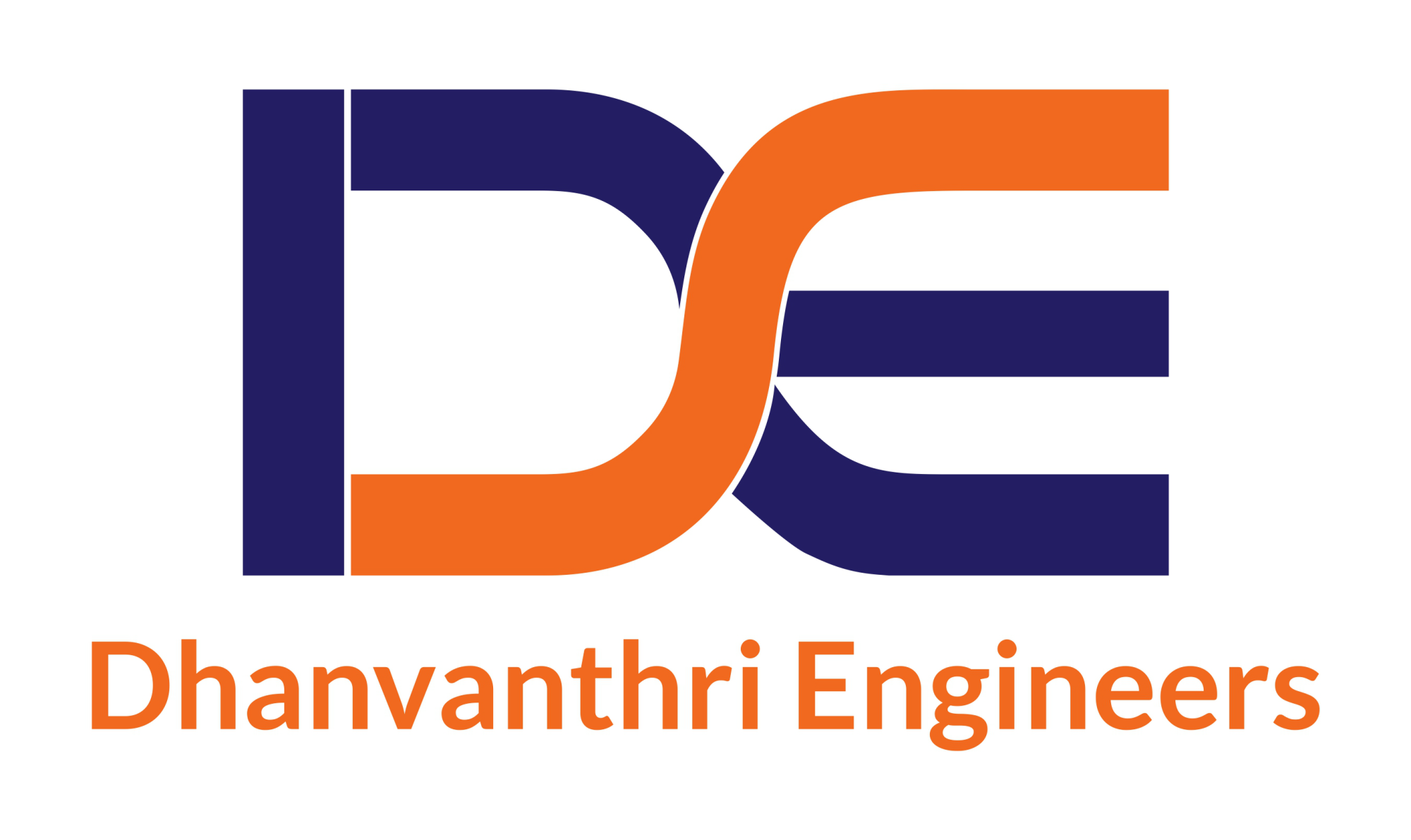Conveyor belts are vital in ensuring the smooth and secure transportation of goods within any facility. Due to constant industry innovation and ever-changing demands, the market offers a diverse range of conveyor belt types that cater to different needs.
As an expert manufacturer of belt conveyors, we understand and acknowledge the critical role these systems serve. With a wealth of experience under our belts, we aim to provide a comprehensive guide to the common types of conveyor belts and their benefits in this blog.
This article is an excellent resource for industry experts who must make informed decisions about which conveyor belt best suits their material handling requirements.
1. Flat Belt Conveyors
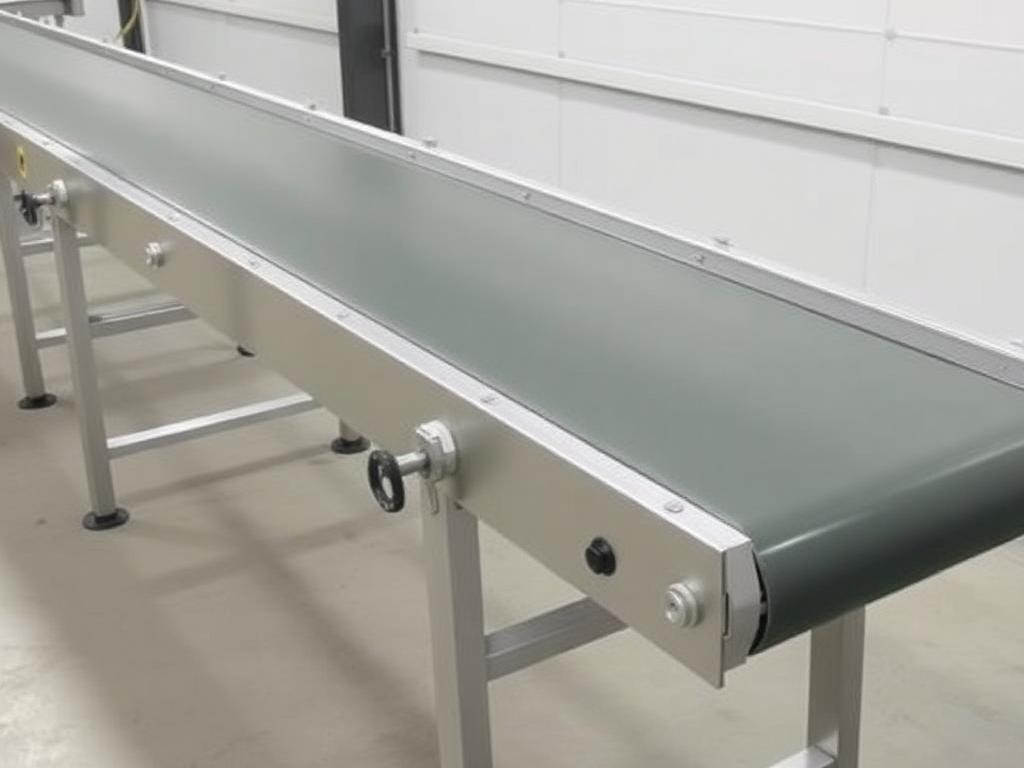
Flat Belt Conveyors are the simplest conveyor belt types, available in endless configurations and customizations depending on the inclinations and project requirements. Moreover, the optimization and expansion of flat belt conveyor parts can accommodate evolving business needs.
These conveyors suit diverse industries, such as manufacturing, food processing, packaging, and logistics.
Benefits:
- More cost-effective to install and maintain, particularly for shorter distances and lighter loads
- It can be customized to fit into small spaces and maneuver around obstacles, making it ideal for crowded production environments
- Offers seamless and uninterrupted material handling, especially for irregularly shaped items
2. Roller Bed Conveyor Belts
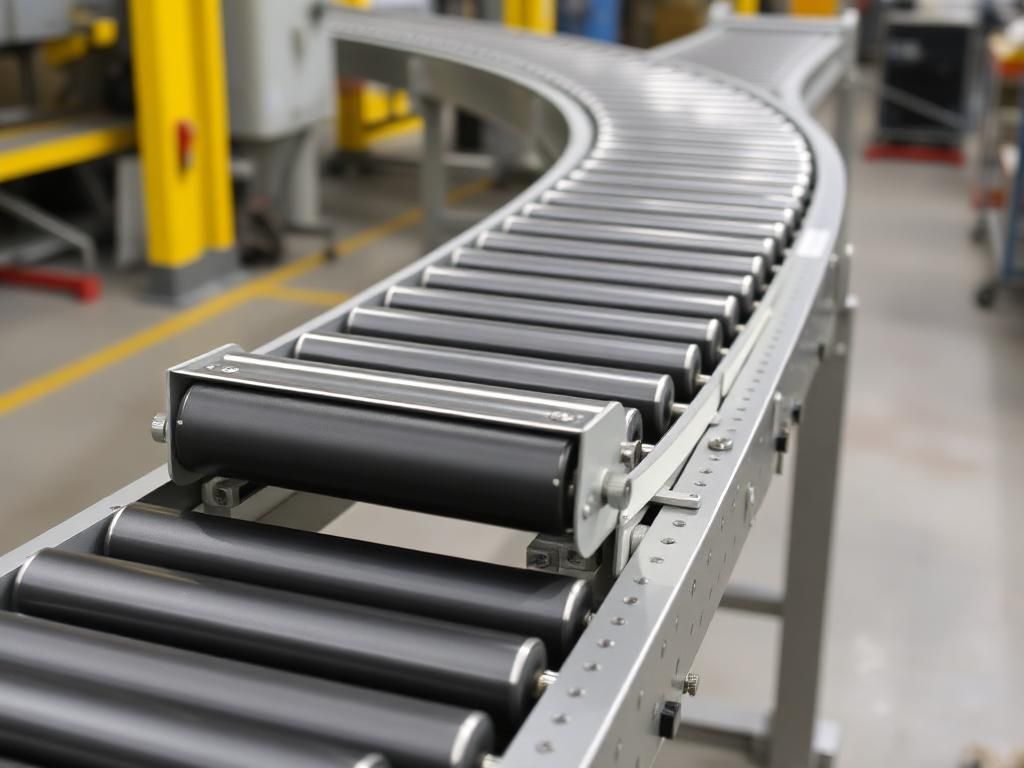
While flat conveyor belts have long been a staple in various industries, the emergence of roller bed conveyor belts has revolutionized the landscape, offering unparalleled benefits, versatility, and customization. These conveyor belts are engineered with rollers strategically positioned along the conveyor bed, thereby minimizing friction and ensuring smooth material transport.
Roller bed conveyor belts are versatile and can handle both fragile and heavy materials, making them ideal for various industries, including manufacturing, distribution, warehousing, automotive, and food processing. They are commonly seen in airport baggage handling systems.
Benefits:
- Rollers in the conveyor belt can be selected according to your production requirements, making it highly customizable
- The rolling action of the bed rollers minimizes friction between the belt and the surface, resulting in energy savings and prolonged belt life
3. Modular Belt Conveyor
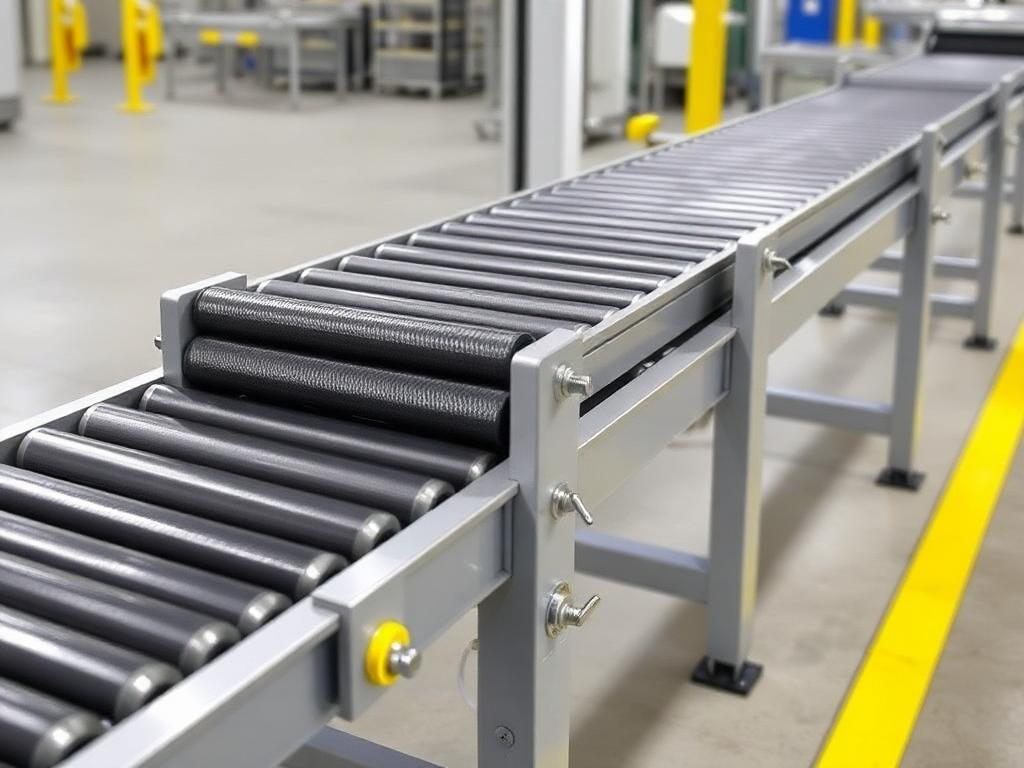
Modular belt conveyors significantly advance material handling efficiency, providing a versatile and customizable solution for various industries. Unlike traditional flat conveyor belts, modular belt conveyors feature interlocking plastic modules and hinge rods.
These conveyor belts have gained significant popularity within the food industry.
Benefits:
- Offers unparalleled customization options because of interlocking plastic modules
- Ease of cleaning and sanitization makes them especially well-suited for industries that require strict adherence to hygiene standards, such as the food processing and pharmaceutical sectors
4. Cleated Belt Conveyor
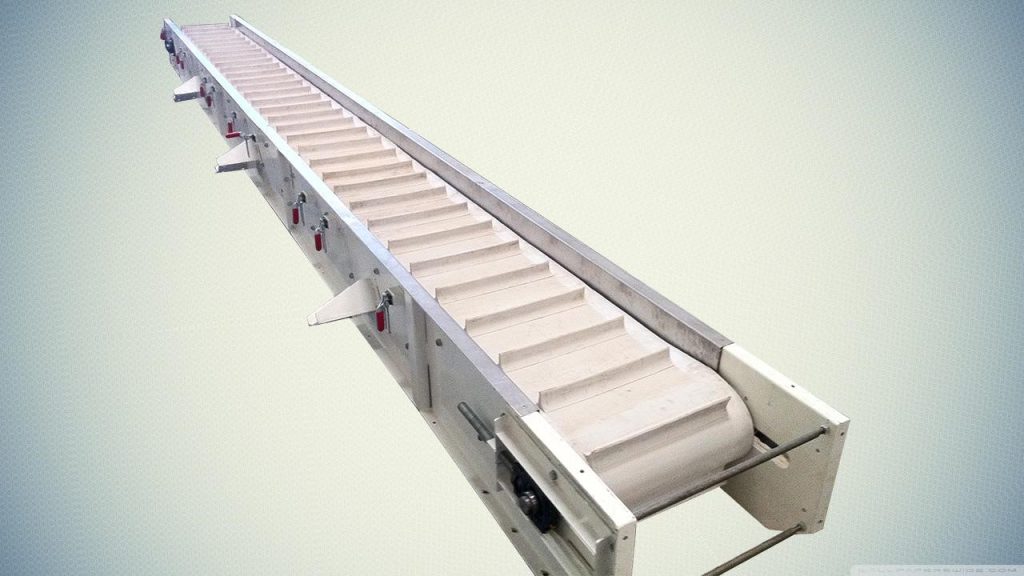
The Cleated Belt Conveyor is designed with vertical or angled profiles (cleats) on the carrying surface to ensure precise spacing between the transported materials. Cleats are available in different shapes such as Capital ‘T,’ Forward-Leaning Capital ‘L,’ and Inverted’ V’ to cater to specific product requirements.
Cleated belts can accommodate irregularly shaped, loose materials or sized items more effectively than standard flat belts. This versatility makes them suitable for conveying items like agricultural products, packages, and parts in manufacturing.
Benefits:
- Provides precise control over bulk materials, especially loose material
- Designed to sustain long-term reliability and performance under challenging industrial conditions
- Can operate in diverse environments, including harsh or challenging conditions such as outdoor settings, wet or oily environments, and areas with high temperatures
5. Magnetic Belt Conveyor
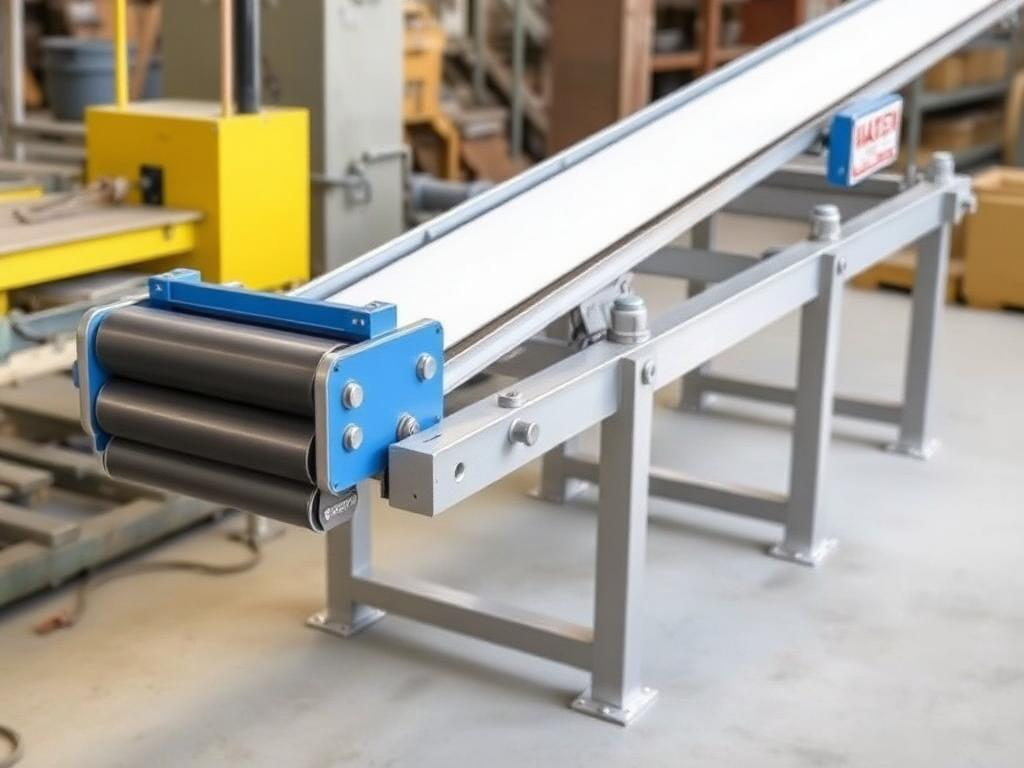
Magnetic belt conveyors are a type of specialty conveyor engineered to transport ferrous materials with precision and efficiency. These conveyors utilize embedded magnets strategically placed within the belt or magnetic plates beneath the conveyor bed to hold and transport metal parts securely.
This technology is particularly effective in material handling processes requiring high accuracy and reliability. Conveyors are commonly used in industries such as recycling, mining, and material handling, where the ability to transport metal parts with precision and safety is of the utmost importance.
Benefits:
- Offers precise control of metal parts
- Magnetic belt conveyors securely hold metal parts in place during transport, minimizing the risk of jams, spills, and equipment damage. This reduces downtime and maintenance costs
Apart from magnetic conveyors, there are other speciality conveyors designed to cater to specific tasks and are available in various types. Each conveyor type is tailored to meet particular application requirements and designed with specific features to enhance performance.
Fiberglass belts, for instance, are known for their durability and resistance to harsh environments, making them ideal for applications in which the conveyor is exposed to high temperatures or chemicals. On the other hand, metal nub belts are suitable for applications that require a conveyor to handle heavy loads and sharp objects.
6. Customized Belt Conveyor
Customized belt conveyors provide tailored solutions for unique material handling challenges. They offer flexibility, efficiency, and innovation to meet specific production requirements across various industries.
These conveyors can be designed with specialized materials and configurations, unique conveyor layouts, and integration with existing systems, giving businesses the power to optimize their material handling processes and improve overall efficiency.
How do I know which Conveyor Belt to choose for my business?
To optimize the effectiveness of conveyor belts in industrial operations, selecting the most appropriate conveyor belt type is imperative based on specific requirements. While understanding the variety of conveyor belt types available is crucial, it’s critical to recognize that your decision will be shaped by several factors, such as
- Available space within your facility
- Characteristics of the products ( weight, dimensions, product temperature, abrasiveness, and sanitation requirements)
- Overall environmental conditions
When considering the implementation of conveyor belts in industrial operations, it is recommended that you consult with an expert to ensure the appropriate selection of a belt that fits the specific application.
Looking into using conveyor belts to improve your operation? Dhanvanthri Engineers, a trusted manufacturer of customized factory and warehouse automation systems, is apt for you.
Why choose Conveyor Belts from Dhanvanthri Engineers?
Dhanvanthri Engineers don’t just supply conveyor belts; each machine we supply is designed to suit your particular requirement to serve your purpose.
With 41 years of experience in the field and over 5000 installations in over 10 countries across 3 continents, we have a proven track record of delivering top-notch products that meet our customers’ needs.
Our in-house expertise and manufacturing unit, based in Navi Mumbai, allow us to offer the best-in-class turnkey solutions. As leaders in conveyor belt manufacturing, we are committed to pushing the boundaries of innovation and efficiency to suit your requirements. Focusing on quality, reliability, and customization, we empower our clients to revolutionize material handling operations and achieve unparalleled levels of productivity.
Don’t hesitate to contact us today if you need to install a conveyor belt in India or anywhere in the world. We’re here to help you find the perfect solution for your business.
